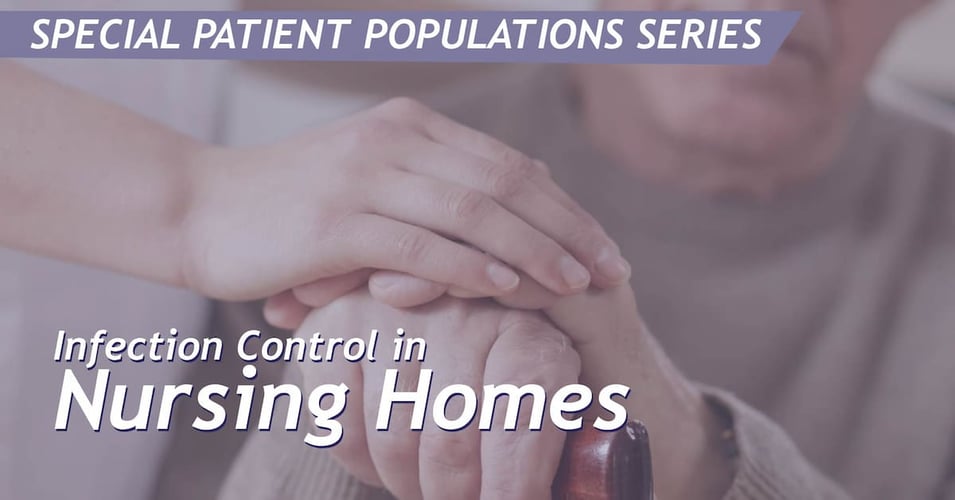Professional Profile: Sorrel King, Josie King Foundation

In the field of patient safety, you find an army of hospital administrators, consultants, manufacturers, healthcare workers, and evaluators. Out in front, pushing into new territory while leading the way, you will find a solitary figure, a mother, the standard-bearer. Her flag is perhaps the most powerful weapon in the fight against medical errors and hospital-acquired infections: Her daughter's story.
"Everything happens for a reason." When you hear those words spoken by the quiet, determined voice of a mother who has lost a child to a medical error, you know you are hearing the voice of a transformed person. Someone who has turned life's cruelest tragedy into something good, something monumental. In the case of Sorrel King, she has transformed the loss of her daughter into a global movement of patient safety and patient advocacy.
When Sorrel King brought her 18-month-old daughter Josie to the Johns Hopkins Medical Center for treatment, she, like most of us, was unaware of the statistics related to medical errors and hospital-acquired infections. As Josie recovered under the care of her doctors, Sorrel was grateful for the excellent medical care she received. But then there was a downturn in Josie's recovery - Josie was lethargic and dehydrated. Her mother insisted that the medical team review her condition, and they determined to stop a specific medicine. So when a nurse arrived to give Josie that same medicine, Sorrel spoke up. She expressed her concern and was informed that "the orders had been changed." What was a mother to do in that moment? Her daughter had received excellent care. Her doctors had responded to her concern about Josie's changed condition. She was at one of the best hospitals in the world. She did what any of us would have done. Sorrel trusted that her daughter's healthcare professionals had worked together and had strong, scientific reasoning behind the decision. She trusted that they had decided what was best for Josie. She put her faith in their decision. As Josie coded and the medical staff tried to revive her, Sorrel could only stand by and watch in despair. A series of events leading to one terrible, earth-shattering human error claimed the life of Josie King.
"We made a mistake. We are very sorry... and we will do whatever it takes to make sure it never happens again." In the aftermath of the tragedy, Sorrel was able to move from a place of rage at the medical institution that made the fatal error to become a crusader for patient safety thanks in part to the way Johns Hopkins handled her daughter's death. They admitted they were at fault. They apologized. And they assured her they would do everything in their power to make sure it never happened again. This transparency, which has become a cornerstone of her Foundation's mission, allowed her family to communicate honestly and develop a plan. This plan, given life by the hospital's settlement and sustained by this and many other champions of patient safety, became the Josie King Foundation.
"Hands down, the story changes everything." Sorrel's journey from grief, rage, and despair to recovery and transformation are recorded in her book Josie's Story, and her daughter's legacy lives on in the Josie King Foundation, through which Sorrel has been able to bring her story to hospitals, medical schools and nursing schools around the world. Her speaking engagements and training sessions bring experts in patient safety together to create curricula, safety protocols, and staff development programs. But more than anything, the story of Josie, as told first-hand by her mother, is what transforms the audience, be it doctors, nurses, administrators, or students. It is the story that hits them in the gut, in the heart, reminding them of the importance of listening to the patient, the family, and each other. Reminding them that good communication and teamwork are not just buzzwords, they are life-saving skills to be practiced and honed.
Her message is twofold: a message for patients and their caregivers and a message to medical practitioners. For patients and caregivers, she has three essentials: Trust that you are in good hands. Be aware of what is going on. Speak up if you have a question. She doesn't want us to go into hospitals expecting the worst - but instead to be aware of what could happen, and especially, to not be afraid to speak up if something seems off.
For practitioners, she has two words: Look and listen. Look at your patient, look and look again at charts and notes, and look at your fellow practitioners. Slow down and really listen to that person in that bed. Listen to their concerns, and listen to that family member who has been at the bedside. They may see things that you don't. Ask if they have any questions or concerns, and invite them to be a part of your team.
"The story goes on and on and on," Sorrel states, "It creates change. Change won't happen unless we are moved emotionally." But how do we change something so complex that involves so many people?
"What you don't know can kill you." Building awareness of patient safety issues is the first step in achieving positive change. One of Sorrel's goals through the Foundation is to encourage practitioners to learn how to discuss medical safety, medical errors, and together reach a level of transparency that brings problems into the light so that they can be solved. If medical errors and safety issues remain taboo topics, they won't be discussed or confronted, which means they will never be solved.
One of the most startling facts Sorrel discovered early in her research was the staggering number of deaths attributed to medical errors. A report released only two years before her daughter's death (To Err is Human, Institute of Medicine, 1999) estimated the number of deaths due to an "unexpected outcome" to be 99,000 per year - the equivalent of a jumbo jet crashing every day. Today's numbers demonstrate that this study was woefully underestimating that number: In 2013, a study in the Journal of Patient Safety estimated that number to be closer to 400,000 - an astounding 1,000 deaths per day.
"You have to take ego out of the equation." In order to reverse these numbers, a change in the hospital culture must occur. Currently, most hospitals have a culture that is not open to pointing out medical errors. Frontline staff, busy beyond belief and prone to human error, are not trained to point out their colleagues' errors - let alone prepared to be corrected themselves. In fact, the culture may discourage them from pointing out errors for a number of reasons. Despite knowing what is right and what is wrong, practitioners need constructive tools to enable them to speak up. The Josie King Foundation - whose mission is "creating a culture of patient safety, together" - has begun culture-changing programs that help staff work together as a patient safety team. One of these is the "Josie King Hero Award" program in which any staff member from any department who catches a medical error is recognized and rewarded. The tangible rewards are simple - a good parking spot, a gift card - but the greater rewards are the change from fear to security. In healthcare cultures where recognizing human error is celebrated, patients are safer.
Other projects supported by the Foundation's programs include journaling classes and resources for nurses, a patient app, medical student curricula, and safety protocols. As a result of a presentation by Sorrel, a pediatric nurse at the UPMC Shadyside and Children’s Hospital of Pittsburgh created a new rapid-response protocol for parents and other pediatric caregivers called Condition Help (Condition H). Parents can call Condition H if they see their child's condition changing in any way and need immediate assistance. This program has been adopted by hospitals nationwide and data demonstrates that well over half of Condition H calls prevented a potentially harmful situation. A physician at Johns Hopkins University, where Josie was treated, created a training program to help fellow physicians and hospitals create the transparency required for effective and respectful prevention and disclosure of medical errors. The Foundation receives hundreds of letters each year from medical students, nurses, and doctors who have heard or read Josie's story and have become committed to patient safety in their own careers. As Sorrel says, "The story goes on and on and on."
When asked what she would change in healthcare if she had a magic wand, Sorrel does not say more money, more nurses, more equipment, or even more hours in the day. Her request, like her philosophy about patient safety, is straightforward: "I want every patient in a bed, every family member, to feel listened to, to feel part of a team, to know their voice matters." It's such a simple request, but one that has far-reaching impact on patient safety.
To find out how you can help the Josie King Foundation, discover resources, or find out more about Sorrel King's crusade, please visit The Josie King Foundation website.
Editor's Note: This post was originally published in April 2015 and has been updated for freshness, accuracy and comprehensiveness.
![EOScu Logo - Dark - Outlined [07182023]-01](https://blog.eoscu.com/hubfs/Eoscu_June2024/Images/EOScu%20Logo%20-%20Dark%20-%20Outlined%20%5B07182023%5D-01.svg)

![[infographic] 5 Steps to Becoming an Empowered Patient Download and share!](https://no-cache.hubspot.com/cta/default/216314/interactive-178406893211.png)



